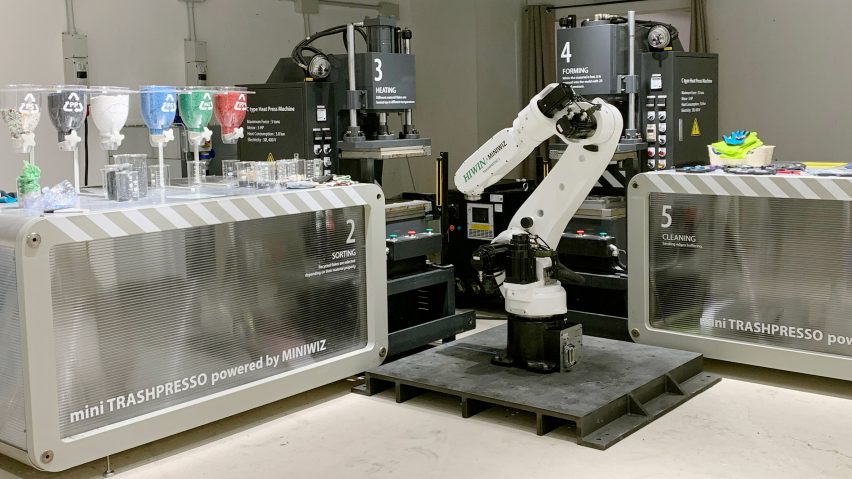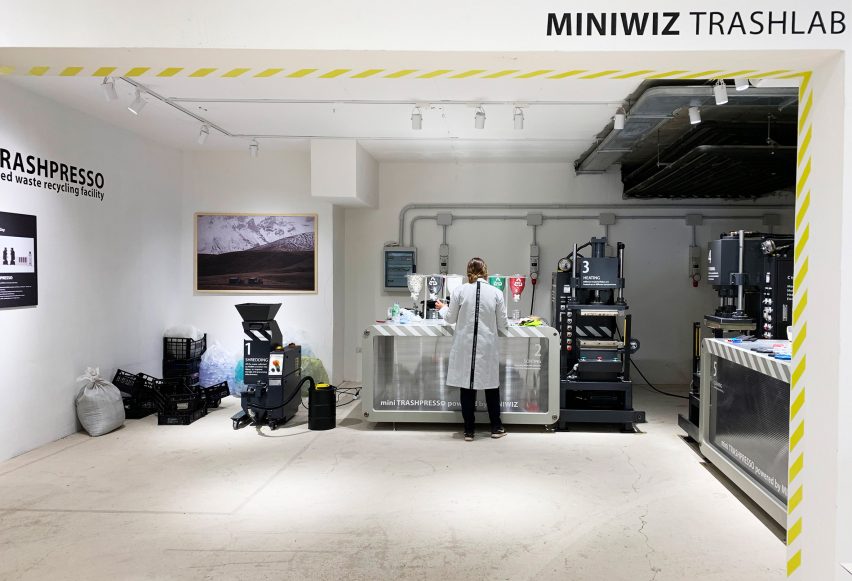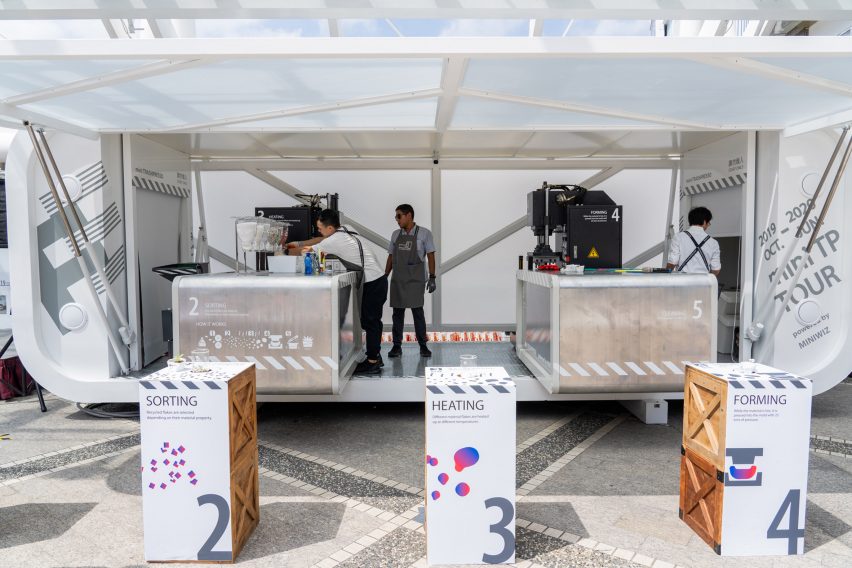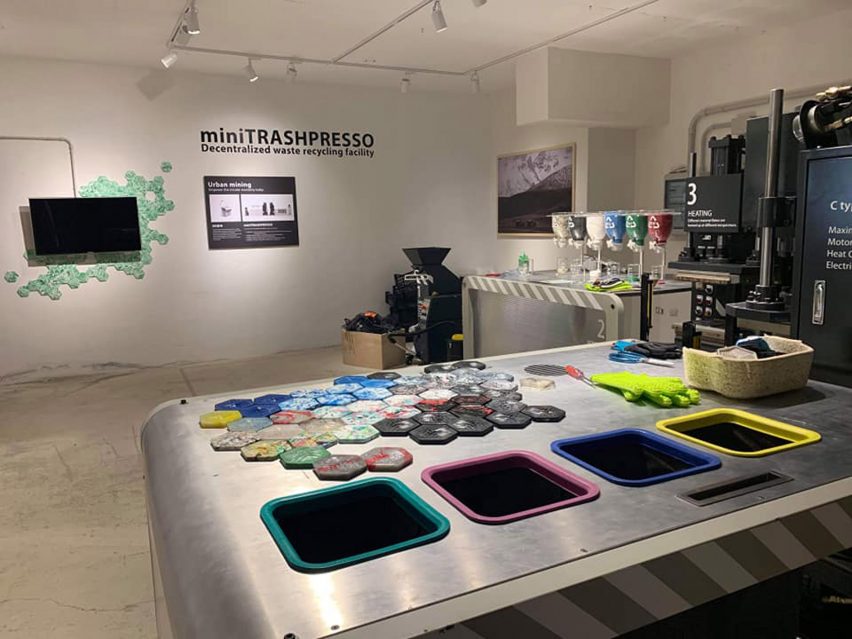
Mobile AI-powered recycling plant Trashpresso wins World Design Impact Prize
An autonomous recycling machine designed by Taiwanese company Miniwiz, which can be transplanted into local communities to transform plastic waste into useful products, has received the 2021 World Design Impact Prize.
Called Trashpresso, the device condenses the same plastic recycling line that normally takes over entire industrial plants into two mobile units about the size of a refrigerator.
The process was designed to be as quick as possible, taking only three minutes from start to finish by making use of artificial intelligence and robotics.

Although working at a smaller scale than a traditional plant, Trashpresso can still recycle up to half a tonne of plastic waste a day. This is equivalent to the consumption of a 10,000-strong community according to Miniwiz.
"Trashpresso overcomes the barriers of distance and energy, demonstrating that recycling can be done anywhere and making upcycling scalable," said Jarvis Liu, who co-founded the company alongside architect and engineer Arthur Huang.
"It leapfrogs existing technology and empowers the circular economy by decentralizing plastic waste management."

The process starts with a smart camera that uses AI to help users sort their plastic waste into different colours and types, from polyproylene to polyethylene terephthalate (PET).
This is then shredded into flakes, washed, dried and melted in a mould before a robotic arm transfers the mould into a heat-press machine, where the plastic can be forged into building materials such as tiles as well as small accessories.
To minimise the machine's footprint on the surrounding environment and prevent off-gassing, the different plastics are heated only to their exact softening temperature, with any volatile organic compounds (VOC) caught by an integrated air filter.
Meanwhile, the water used to wash the plastics is subsequently purified and circled back into the process rather than being discarded.
"Trashpresso minimises the air and water footprint to almost zero with just seven kilowatt-hours of power consumption," Liu told Dezeen.
So far, the machine has been shipped to Tibet to help build a school from local waste, while in Sardinia it was integrated into a pop-up shop where customers paid with plastic waste instead of cash.

"Not only does it convert waste on the spot," Liu explained. "It also serves as an educational tool in communities, inspiring consumers to bring in their own personal plastic waste to produce unique durable product to take home."
The World Design Organisation has awarded the project this year's World Design Impact Prize, which recognises industrial design projects with a positive social, cultural or environmental impact.